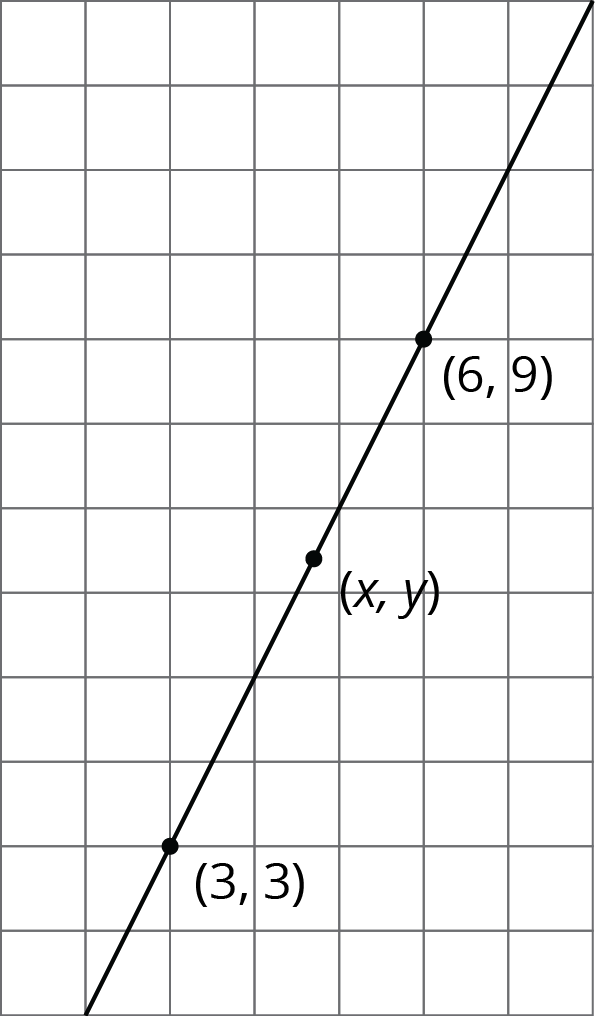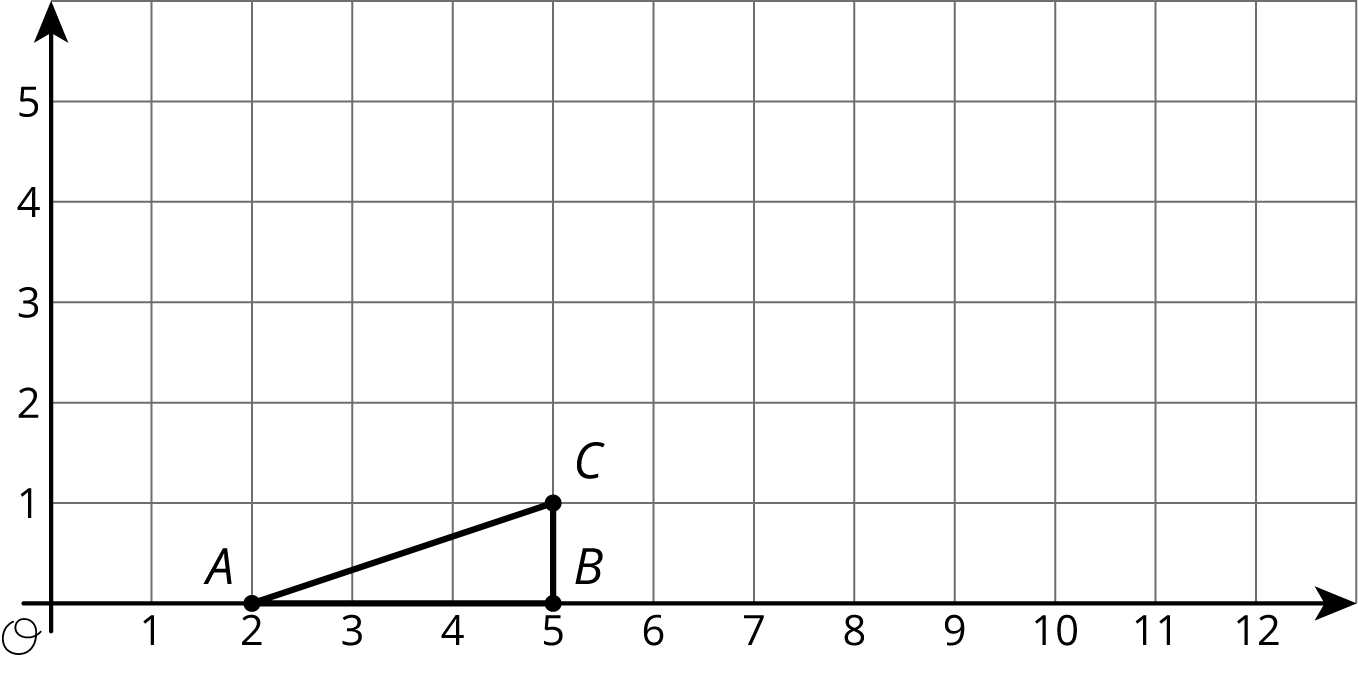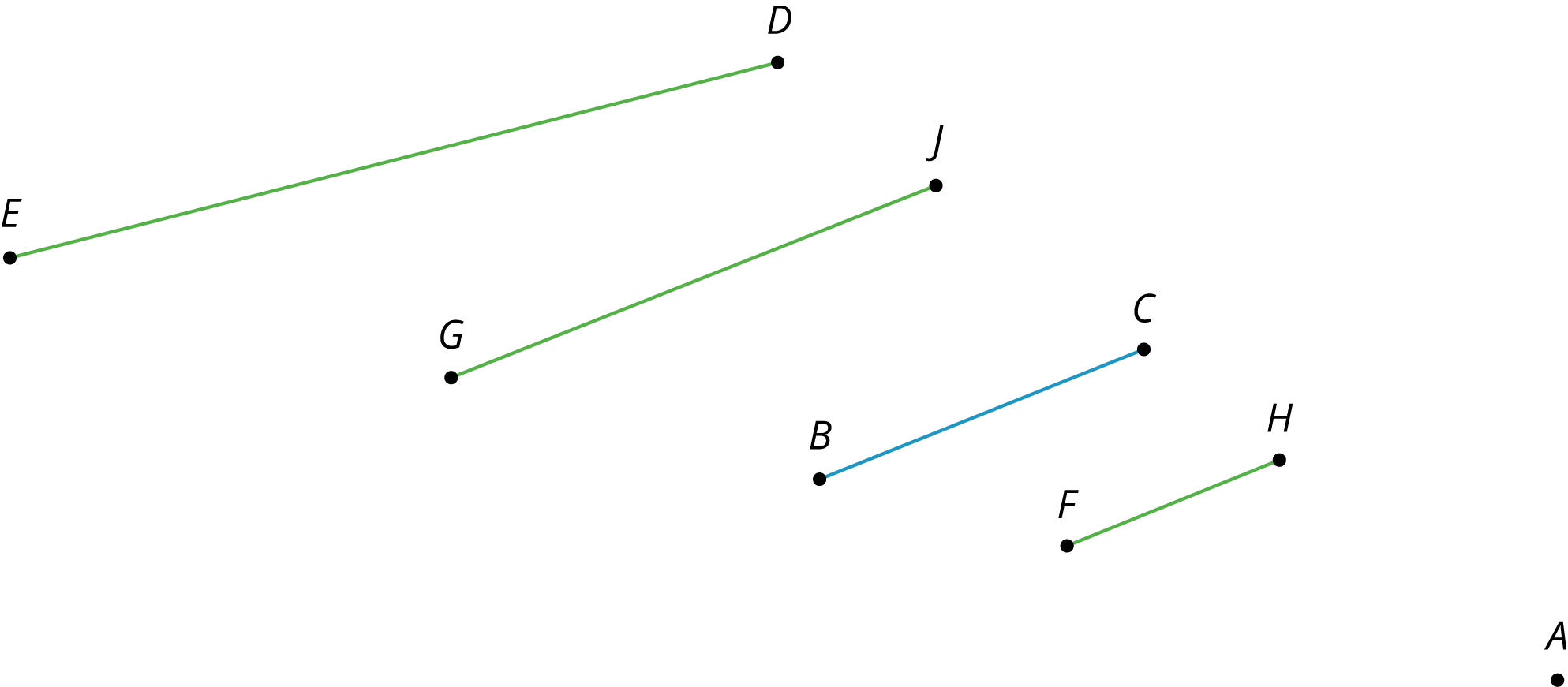Lesson 12
Using Equations for Lines
Problem 1
Select all the points that are on the line through \((0,5)\) and \((2,8)\).
A:
\((4,11)\)
B:
\((5,10)\)
C:
\((6,14)\)
D:
\((30,50)\)
E:
\((40,60)\)
Solution
For access, consult one of our IM Certified Partners.
Problem 2
All three points displayed are on the line. Find an equation relating \(x\) and \(y\).

Solution
For access, consult one of our IM Certified Partners.
Problem 3
Here is triangle \(ABC\).

- Draw the dilation of triangle \(ABC\) with center \((2,0)\) and scale factor 2.
- Draw the dilation of triangle \(ABC\) with center \((2,0)\) and scale factor 3.
- Draw the dilation of triangle \(ABC\) with center \((2,0)\) and scale factor \(\frac 1 2\).
- What are the coordinates of the image of point \(C\) when triangle \(ABC\) is dilated with center \((2,0)\) and scale factor \(s\)?
- Write an equation for the line containing all possible images of point \(C\).
Solution
For access, consult one of our IM Certified Partners.
Problem 4
Here are some line segments.

- Which segment is a dilation of \(\overline{BC}\) using \(A\) as the center of dilation and a scale factor of \(\frac23\)?
- Which segment is a dilation of \(\overline{BC}\) using \(A\) as the center of dilation and a scale factor of \(\frac32\)?
- Which segment is not a dilation of \(\overline{BC}\), and how do you know?
Solution
For access, consult one of our IM Certified Partners.
(From Unit 2, Lesson 4.)